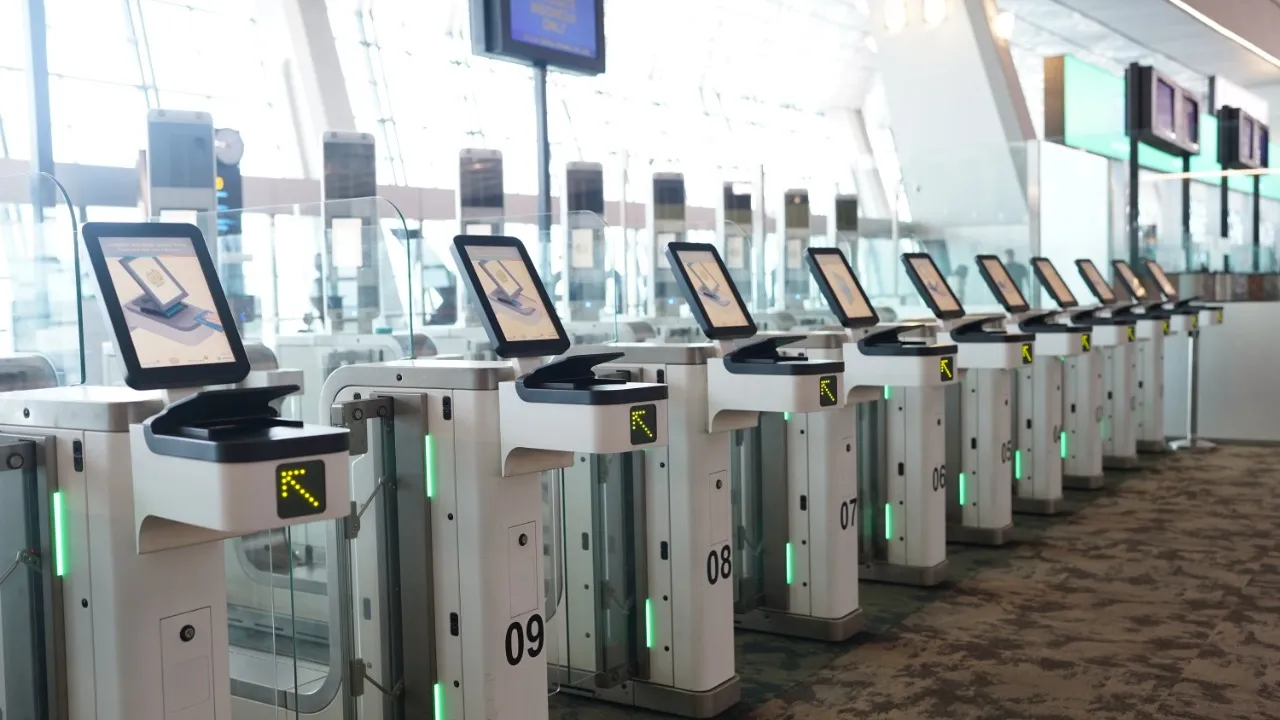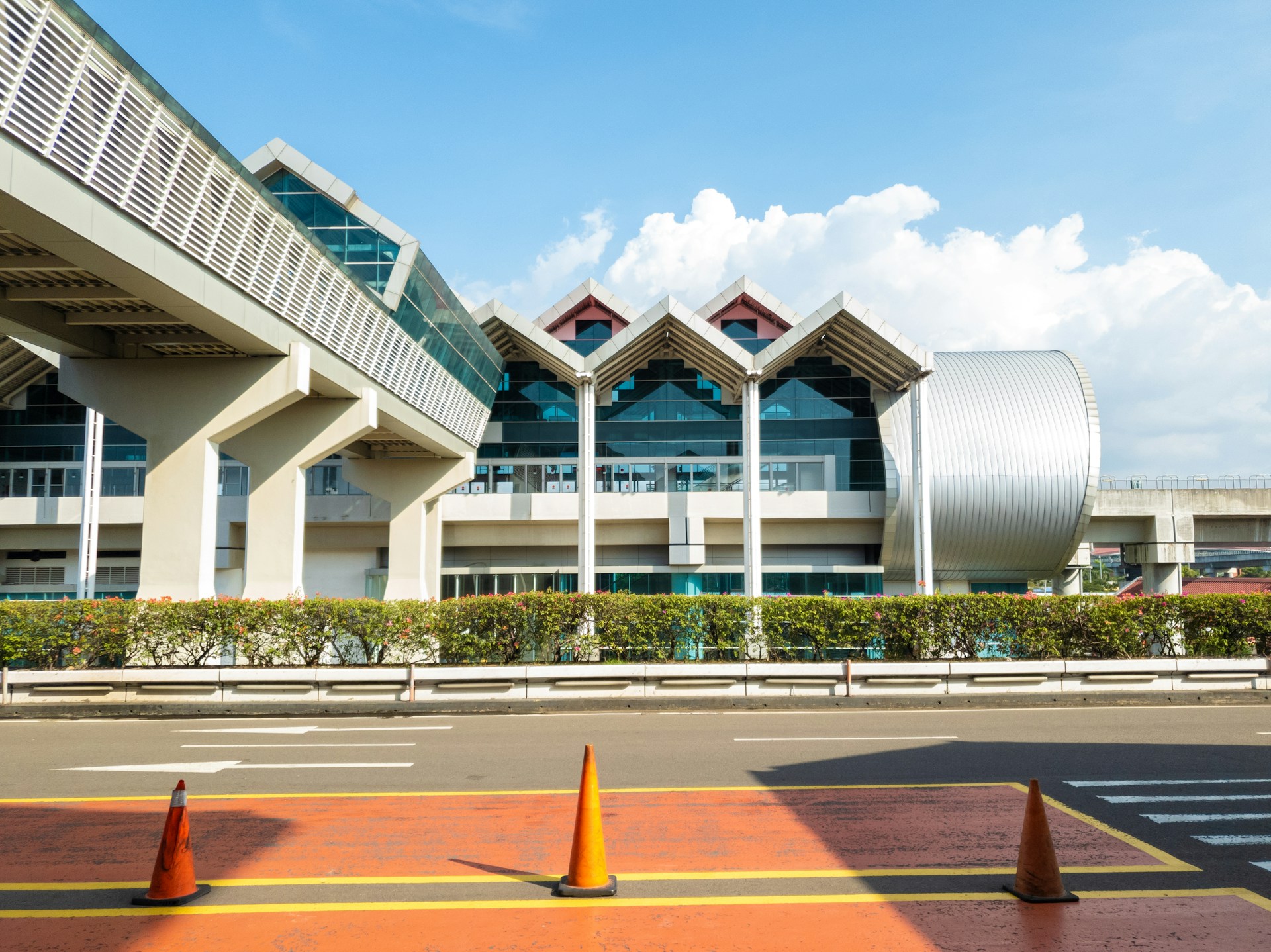Indonesia, a Southeast Asian archipelago nation, boasts a thriving travel and tourism industry. As passenger traffic steadily increases, airports across the country are implementing innovative solutions to expedite immigration processes. One such advancement is the introduction of automatic gates (auto gates).
What are New Automatic Gates?

Autogates openers are self-service control kiosks equipped with ready facial recognition technology and passport scanners. Passengers eligible to use them can clear immigration by scanning their passports and undergoing facial verification through the intelligent and smart door. This eliminates the need to wait in long queues for manual immigration checks, significantly reducing processing time.
Benefits of Automatic Gates Opening Feature

The implementation of auto gates at Indonesian airports offers a multitude of advantages:
- Enhanced Passenger Experience: Autogates expedites immigration clearance swing gate, leading to shorter waiting times and a smoother travel experience for passengers. This is particularly beneficial for frequent flyers and those on tight connections.
- Improved Airport Efficiency: By using new automated immigration slide checks, auto gates free up immigration officers to handle more complex cases, improving overall airport efficiency service.
- Reduced Operational Costs: Autogates require less manpower compared to traditional immigration booths, potentially leading to cost savings for airport authorities.
- Modernized Infrastructure: Autogates contribute to a more modern, convenience and technologically easy access control advanced image for Indonesian airports.
Current Status of Automatic Gates in Indonesia
As of March 2024, only two major airports in Indonesia utilize auto gates:
- Soekarno-Hatta International Airport (CGK): Jakarta’s Soekarno-Hatta Airport, the busiest in Indonesia, boasts the most extensive automated network. In January 2024, the Directorate General of Immigration deployed a total of 78 auto gates across Terminals 2 and 3. These are divided between arrival and departure terminals, offering convenient options for both inbound and outbound passengers.
- Ngurah Rai International Airport (DPS): Bali’s Ngurah Rai International Airport, a popular tourist destination, recently joined the automated club. As of March 6, 2024, 30 autogates became operational, further streamlining immigration procedures for visitors to the Island of Gods, Bali.
Who Can Use Automatic Swing Gates?
Eligibility to use auto gates in Indonesia varies depending on nationality and passport type. Here’s a right breakdown:
-
Indonesian Citizens: Holders of both electronic (e-passports) and non-electronic passports can utilize auto gates.
-
Foreigners:
- Citizens of certain countries may be eligible to use automated upon registration with Indonesian immigration authorities. Details and a list of eligible nationalities are expected to be announced soon.
- Alternatively, foreigners can still utilize the traditional immigration booths with immigration officers.
Easy Using Smart Automatic Gates in Indonesia
For those eligible, using auto gates in Indonesia is a straightforward process:
- Approach the auto gate kiosk.
- Ensure your face is fully visible by removing hats, masks, or other accessories that might obscure your features.
- Scan your passport’s biodata page on the designated reader.
- The auto gate will capture your facial image and compare it with the information on your passport chip.
- If everything matches and no discrepancies arise, the gate will open, allowing you to proceed.
Future of Automatic Gates in Indonesia

The successful implementation of autogates at Soekarno-Hatta and Ngurah Rai airports paves the way for their expansion to other major Indonesian airports. Here’s a glimpse into what the future holds:
- Wider Network: We can expect to see auto gates rolled out in airports like Medan’s Kualanamu International Airport (KNO), Surabaya’s Juanda International Airport (SUB), and Balikpapan’s Sepinggan International Airport (BPN).
- Increased Eligibility: The Indonesian government is likely to expand the list of nationalities eligible to use automated gate opening, further streamlining immigration for international travellers.
- Integration with Biometric Programs: Potential exists for future integration of auto gates with biometric registration programs, allowing for even faster and more seamless heavy-duty immigration clearance.
Challenges and Considerations Include:
While auto gates offer numerous benefits, there are also some challenges to consider:
- Technical Issues: Like any technology, auto gates products are susceptible to technical malfunctions. Backup plans and alternative immigration channels are crucial to ensure smooth passenger flow in case of system disruptions.
- Data Privacy Concerns: The use of facial recognition technology raises concerns about data privacy. Indonesian authorities must ensure robust security measures to protect passenger information.
- Accessibility: Autogates might not be suitable for everyone. Passengers with disabilities, young children, or those encountering technical difficulties may require assistance from immigration officers.
Conclusion
Automatic gates at airports in Indonesia represent a significant advancement in air travel technology, offering a seamless and secure passenger processing experience. As Indonesia continues to modernize its aviation infrastructure, the widespread adoption of automatic gates underscores the country’s commitment to enhancing airport efficiency, security, and passenger satisfaction.









































